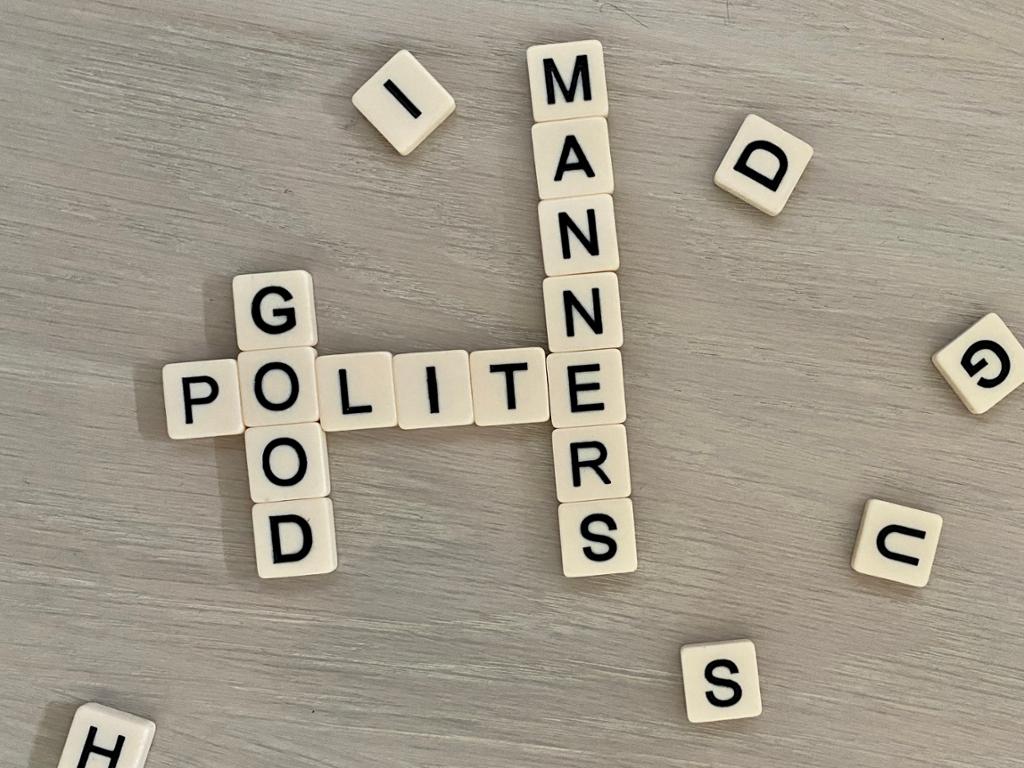Tasks: Politeness

Study the sentence pairs in the box below and explain why one is more polite than the other.
Can you turn on the TV?
Would you mind turning on the TV?Can you lend me a hand?
You couldn't lend me a hand, could you?I would like some shortbread and a cup of tea, please.
Can I have some shortbread and a cup of tea?I think we should go to the beach.
Let's go to the beach.I wondered if you would like to go out sometime.
Do you want to go out sometime?I am hoping that you will consider me for the job.
I hope you consider me for the job.Maybe this is not such a good idea.
I don't think this is a good idea.It is not quite what we are looking for.
It is not what we are looking for.Would it be worth the time to work until late today?
Let's work until late today.I would like to thank you for all your hard work.
Thank you for your hard work.
The Anglo-EU Translation Guide has been making the rounds on the internet for a few years now. It is a humorous guide that aims to "decrypt" some frequently used phrases so that non-Brits can understand what is really being said.
Read an excerpt below. Then discuss the questions. Work with a partner.
How do you think most people who are not British would interpret the statements that have been marked in bold?
Do you think a desire to be polite plays a part in how the British choose to say things?
What misunderstandings can arise when British people choose to express themselves in this way?
What the British say: "I hear what you say"
What the British mean: "I disagree and do not want to discuss it any further.What the British say: "This is in no sense a rebuke"
What the British mean: "I am furious with you and letting you know it"What the British say: "With the greatest respect"
What the British mean: "I think you are wrong (or a fool)"What the British say: "Correct me if I'm wrong"
What the British mean: "I know I'm right--please don't contradict me"What the British say: "QUITE good" (with the stress on the "quite")
What the British mean: "A bit disappointing"What the British say: "Perhaps you would like to think about...."/"I would suggest..." /"It would be nice if..."
What the British mean: "This is an order. Do it or be prepared to justify yourself..."What the British say: "Do as much as you think is justifed"
What the British mean: "Do it all"What the British say: "Oh, by the way/Incidentally ..."
What the British mean: "The primary purpose of our discussion is..."
Work with a partner. Take inspiration from the The Anglo-EU Translation Guide (excerpt above). Imagine that you are a Norwegian working in an office in London. You are about to finish a project, but your British boss is not 100% satisfied with the work that you have done.
Create and perform the dialogue.
Pick one of the tasks below. Use formal and polite language.
Your computer broke two days after the warranty expired. Write a polite letter to the shop asking them if they can help you repair it cheaply even though it is out of warranty.
You missed the deadline for an important paper, and the rules state that this means you will not be graded for the term. Write a letter to the headmaster appealing the decision.
You made rude comments on a celebrity's Instagram page, and was exposed to a lot of harassment and trolling from their fans as a consequence. The story was also picked up by mainstream media. Write a press release where you apologise for the rude comments you made.
You are furnishing an apartment together with a famous interior designer. In your opinion he has chosen the wrong colour palette for the project. Write a polite email where you explain your opinion.
In the expandable box below you will find some tips on how to be polite in Norway.
Read the list carefully. Do you agree or disagree with the points presented in the list? Are there other rules that you think should be included?
Use the internet and find tips about how to be polite in Britain. Make a list similar to the one below. Call it "How to be polite in Britain".
Share your list in a group or in class.